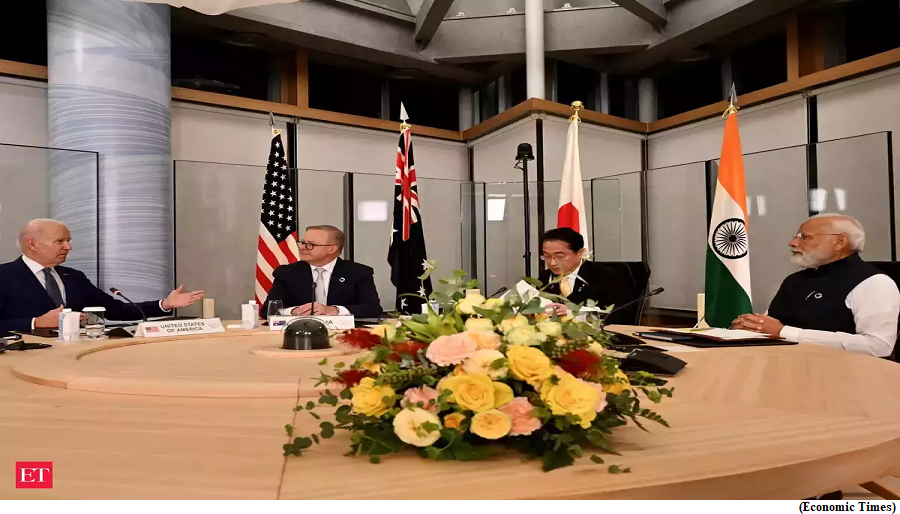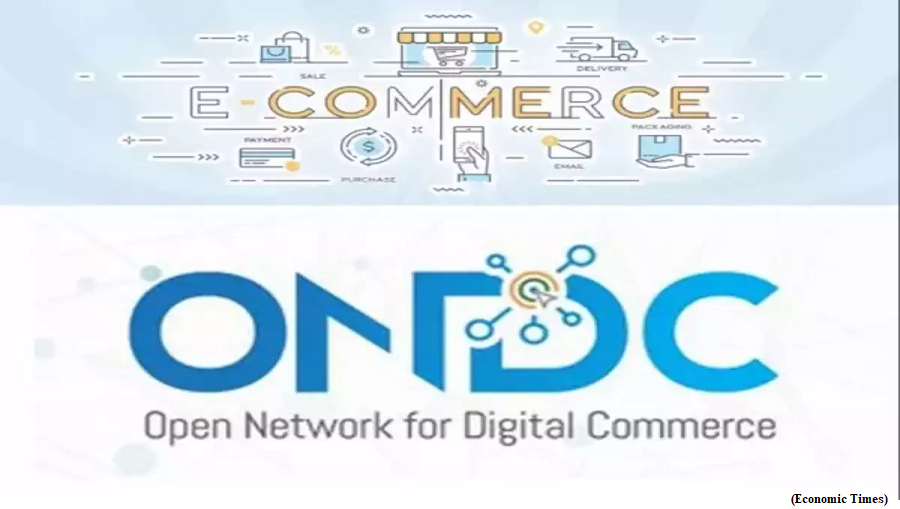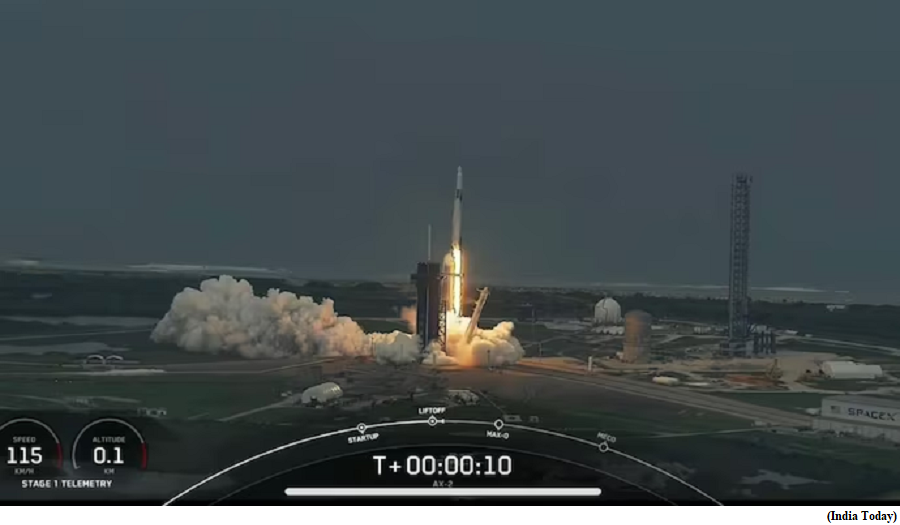10 point action plan PM Modi gave at G7 (GS Paper 2, International Organisation)

Why in news?
- The 49th G7 summit was held from 19 to 21 May 2023 in Hiroshima, Hiroshima Prefecture, Japan.
Participants:
- The G7 currently consists of the United States, Canada, Japan, the United Kingdom, France, Germany and Italy, plus the European Union as a “non-enumerated member,” but the forum has over the years invited participation by non-member countries such as India, Poland and Spain.
- In 2023, leaders from 16 countries, plus the EU, attended the three-day summit.
- Apart from the G7 members and the EU, leaders are attending from India, Brazil, Indonesia, Vietnam, Australia, South Korea and Comoros and Cook Islands – the latter two also representing the African Union and Pacific Islands Forum, respectively, as their current chairs.
Why does the G7 want to expand ties with developing countries?
- While the G7 is looking to promote a united front in its efforts to pressure Russia to end its war in Ukraine, most of the international community has declined to take a side in the conflict.
- With the exception of Japan, the sanctions campaign against Russia has been a Western-led effort.
- While Russia’s trade with G7 countries has plummeted, China, India and Turkey have picked up much of the slack through increased imports of Russian coal, oil and gas. Russia’s economy only contracted by about 2.2 percent in 2022, far less than expected.
- Although the G7 is still influential, its share of the global economy has declined from about 70 percent during the 1980s to 44 percent today – meaning that it has limited scope to tighten the screws on Russia without buy-in from the wider international community.
10-point action plan by PM Modi:
- Inclusive food systems that protect the most vulnerable: In his address, he emphasised the need for developing an inclusive food system that targets the most vulnerable population across the globe, especially marginal farmers.
- Depoliticise global fertiliser supply chains: Without naming any country, he called for checking the expansionist mentality surrounding fertiliser resources. He further said that there is a need to remove political obstacles in strengthening the global fertilizer supply chains.
- Develop an alternative model to fertilizers: Highlighting the importance of natural farming, he gave a call to reduce reliance on fertilisers.
- Stop food wastage to strengthen food security: He also emphasised the need to prevent the wastage of food saying it should be our collective responsibility to check wastage for a sustainable global food security.
- Development models inspired by the needs of Global South: He pitched for democratising technology to bridge the gap between development and democracy. He pitched for a development model that facilitates developing countries rather than creating hindrances for them.
- Promote holistic healthcare: He stressed the need to adopt a holistic approach towards healthcare that includes the traditional systems of medicine.
- Adopting Millet: He discussed how millets simultaneously address the challenges of nutrition, climate change, water conservation and food security. He made a case for promoting more awareness around the benefits of adopting millets.
- Resilient healthcare systems: He raised the importance of developing a resilient healthcare system globally in his 10-point action plan.
- Promote digital healthcare: He also emphasised on the need to promote and facilitate digital healthcare to ensure universal health coverage globally.
- Ensure mobility of healthcare professionals: Along with holistic healthcare development and the need for digital healthcare, he also pitched for better mobility for healthcare professionals to improve access to healthcare globally.
Open Network for Digital Commerce
(GS Paper 3, Economy)
Why in news?
- The Union government is looking to formally launch the Open Network for Digital Commerce (ONDC) this year to “democratise e-commerce” and “to provide alternatives to proprietary e-commerce sites”.
- While it has urged companies to join the ONDC platform, major e-commerce players such as Amazon and Flipkart have been reluctant to get on board.

What is the ONDC?
- The government wants to change the fundamental structure of the e-commerce market from the current “platform-centric model to an open-network model”. The ONDC is modelled after the Unified Payments Interface (UPI) project that is seen as a success by many.
- The UPI project allows people to send or receive money irrespective of the payments platforms on which they are registered. Similarly, the government wants to ensure that buyers and sellers of goods in the e-commerce market can transact regardless of the platforms on which they are registered.
- So under ONDC, a buyer registered on Amazon, for example, may directly purchase goods from a seller who sells on Flipkart. To make such transactions a reality, the government has ordered companies to list themselves on the ONDC.
- The pilot version of ONDC was launched in 2021 in a few major cities and thousands of sellers have already been on-boarded onto the platform. Amazon and Flipkart, however, have not on-boarded their main shopping platforms onto the ONDC network yet.
Why is the Centre pushing for it?
- The government believes that the ONDC will put an end to the domination of the e-commerce market by a few large platforms. It says that the e-commerce market is currently broken into “silos” operated and dominated by private platforms.
- Amazon and Flipkart, for instance, have been accused of promoting certain seller entities in which they hold indirect stakes. Food delivery apps such as Swiggy and Zomato have also been accused of charging high commissions from sellers.
- With an open network like ONDC that connects buyers and sellers across platforms, the government hopes to level the playing field and make private platforms redundant.
What lies ahead?
- The capacity of the government’s technocrats to come up with an efficient alternative to e-commerce platforms that can work seamlessly will be tested as the government rolls out the ONDC. It remains to be seen if and how the government’s open network will list products offered by various sellers.
- Competition generally pushes e-commerce platforms to prominently list products that are most likely to catch the fancy of buyers. Their on-boarding and listing of sellers is also heavily influenced by the ability of sellers to fulfil customer orders.
- In fact, platforms may invest money to build exclusive on-boarding and listing processes. If the open network’s rules prevent platforms from benefiting from such investments, they may cease to make them anymore.
- This will eventually affect the quality of services available to consumers. Building an efficient marketplace for the sale of goods and services may turn out to be the key challenge for ONDC.
SpaceX launches first Saudi astronauts to Space Station on 2nd private Axiom mission
(GS Paper 3, Science and Technology)
Why in news?
- SpaceX recently successfully launched the second private mission by Axiom Space to the International Space Station (ISS).

Details:
- The Crew Dragon spacecraft with four astronauts lifted off from Launch Complex 39A at Nasa’s Kennedy Space Center in Florida.
- The spacecraft carried two Saudi astronauts to Space Station, which included the first female astronauts from the country along with two others.
- Commander Peggy Whitson, Pilot John Shoffner, and Mission Specialists Ali Alqarni and Rayyanah Barnawi representing the Kingdom of Saudi Arabia have been launched to the Space Station.
Key Highlights:
- The four will work to further the development of the commercial space station envisioned by Axiom Space, a private aerospace company.
- They will be working and living in the orbiting laboratory to implement a full manifest of science, outreach, and commercial activities.
- During their stay in the zero-gravity lab, they will conduct key experiments to study how microgravity affects stem cells and thick tissue constructs.
- Their work is aimed at detecting diseases and developing therapies for people on Earth. The four-member team is set to carry out some 20 experiments while on the ISS.
Background:
- The four astronauts will join three Russians, three Americans, and Emirati astronaut Sultan al-Neyadi, who was the first Arab national to go on a spacewalk in April 2023.
- Axiom Space carried out its first private astronaut mission to the ISS in April 2022, sending three businessmen, and former astronaut Michael Lopez-Alegria to spend 17 days in orbit as part of Ax-1.
Private space stations:
- For Axiom Space, these missions are a first step toward an ambitious goal: the construction of its own space station, with the first module expected to launch in 2025.
- The station would at first be attached to the ISS before separating and orbiting independently.
- NASA plans to retire the ISS around 2030 and to instead send astronauts to private stations, which will also host their own clients, leading the US space agency to encourage the development of programs by several companies.
- Russia recently agreed to extend its use of the ISS until 2028, having threatened an earlier pullout last year as ties unraveled between the Kremlin and the West over Moscow's invasion of Ukraine.
- The other international partners; Japan, Canada and the European Space Agency have committed themselves, like the United States, to continue operations until 2030.




